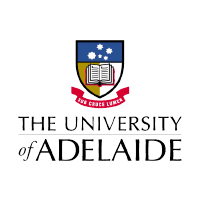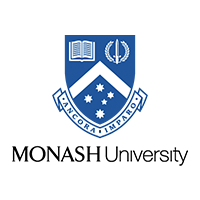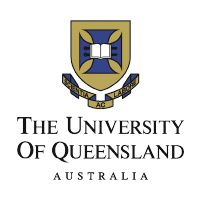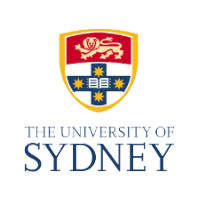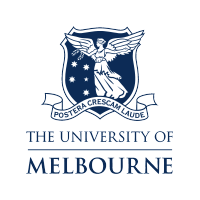All Testimonials
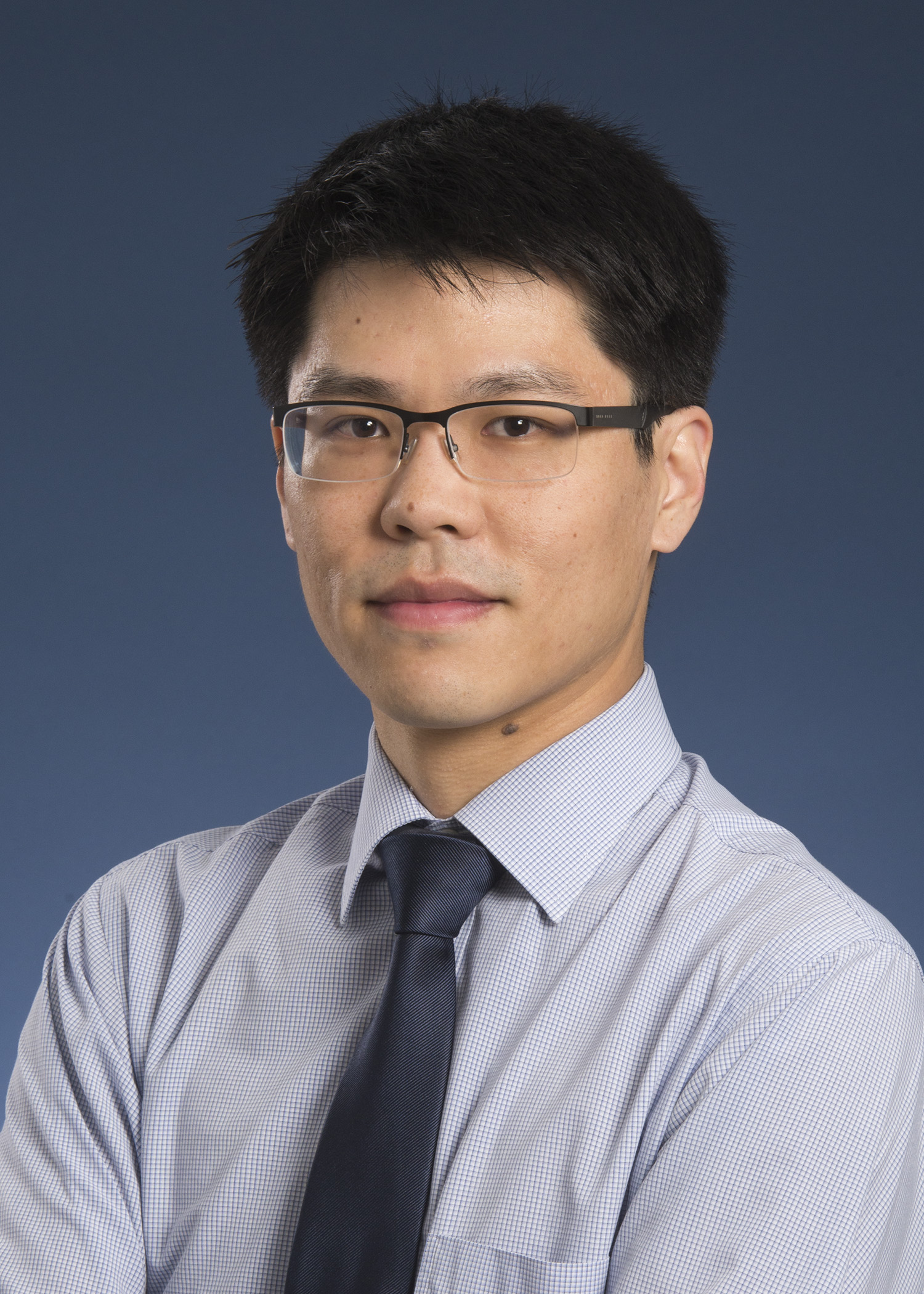
My primary work is as a medical oncologist. I commenced the Master of Biostatistics course whilst undertaking an overseas fellowship, during which I rekindled my passion and aptitude for mathematics, computing and clinical trials research. This was absolutely the perfect match for me, i.e. dedicated biostatistics teaching that I am truly passionate about. It has been personally fulfilling – I discovered my vocation for biostatistics – and as things turn out, it has been invaluable for my part-time academic role at the NHMRC Clinical Trials Centre. I firmly attest that biostatistics form the foundation of well-designed clinical trials and facilitate an informed interpretation of the literature.
I am grateful for the generous knowledge and wisdom shared by my lecturers, mentors and fellow students during this intensive three-year journey of biostatistical learning and discovery. I am proud of the BCA Master of Biostatistics course and highly recommend it – I hope to see more colleagues pursue this accomplishment.
Hao-Wen Sim Medical Oncologist, St Vincent's Hospital and Chris O'Brien Lifehouse, Sydney Clinical Lead (Cooperative Trials Group for Neuro-Oncology), NHMRC Clinical Trials Centre, University of SydneyMaster of Biostatistics
University of Sydney and BCA Star Graduate 2019
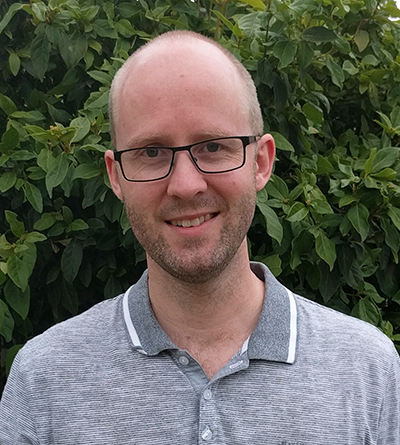
I started my BCA studies while working as a consulting biostatistician at the University of Adelaide. Although I’d completed an undergraduate degree in mathematical statistics, I was keen to learn more about biostatistics and to consolidate some of my earlier learning. I found all the subjects in the program to be really stimulating, with many of the materials being directly applicable to the problems I was facing in my day to day work. It was also great to learn from some of the leading biostatisticians in Australia.
Having finished my Masters of Biostatistics (and a PhD in statistics around the same time), I am now working as a research biostatistician at the South Australian Health & Medical Research Institute, where I help out on randomised trials and spend some time researching statistical methods (for handling missing data mostly). I think biostatistics is a great career to be in, and it’s something that will always be in demand with the world becoming more and more data-driven.
Tom Sullivan Senior Biostatistician, Healthy Mothers Babies & Children, South Australian Health & Medical Research InstituteMaster of Biostatistics
University of Adelaide and BCA Star Graduate 2018
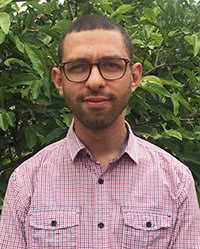
I started the Master of Biostatistics program as part of the NSW Biostatistics Training Program after my undergraduate studies in statistics and some experience as a statistician at the Hunter Medical Research Institute based at Newcastle.
I found the program to be very useful especially when undergoing training with NSW Health and being able to apply the concepts simultaneously while studying. The units offered were very practically oriented whilst also giving the theoretical context supporting the methods. There were many units offered in specialised areas of biostatistics such as survey methodology and correlated data which are interesting and currently needed in professional practice.
Following the program I am now employed as a Senior Biostatistician with NSW Health. My role is focussed on using statistical models to appropriately plan specialised hospital services offered at a state level.
Joe Hanna Senior Biostatistician, NSW Ministry of Health| Master of Biostatistics University of Sydney 2018 |
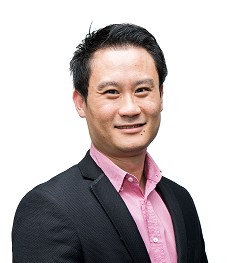
It was through A/Prof Ayse Bilgin from Macquarie University that I realised the way I had been analysing my clinical data had only really scratched the surface in the biostatistics field. It was then that I decided to undertake the BCA Masters degree and embark on a journey that would help me make sense of the numbers in my datasets and transition into the “big data” era of multi-omics research.
It was a very tough journey being a full time academic and a part-time student. It was intimidating to face a program that is mathematically challenging at first for a biologist, but the program was structured in a logical way that was incremental and easy to follow. All the subjects had excellent content that was relevant to my research work, and the engagement with the course convenors and online students was great. BCA had instilled in me a solid approach to biostatistics.
Now, in addition to applying this biostatistics knowledge to my research, I am helping my colleagues with their statistics problems and bridging the biostatistics knowledge gap in my department. I was even approached by my department to design a new undergrad unit on biostats in medical research, providing me with new career opportunities. Since completion of the BCA, I have dived further into learning about data science such as machine learning. –“the learning never ends.”
Edwin Lim Senior Research Fellow, Macquarie University, Faculty of Medicine and Health SciencesMaster of Biostatistics
University of Sydney 2017
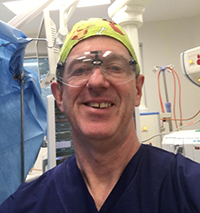
It’s a great course and has left me with a firm foundation to build upon.
I have been recommending it to anyone who will listen!
Richard Hiscock Anaesthetist, Mercy Hospital for Women; Honorary Research Fellow, Department of Obstetrics and Gynaecology, University of Melbourne| Master of Biostatistics University of Melbourne and BCA Star Graduate 2017 |
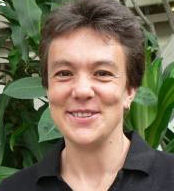
I fell into a career in veterinary epidemiology after completing a PhD in veterinary parasitology. I soon appreciated that I wanted a deeper understanding of the biostatistical methods that I was starting to use. I wasn’t sure how to achieve that, but a couple of colleagues independently recommended the BCA program to me. It turned out to be exactly what I wanted. I found the first courses providing the background in mathematics and statistical theory the most challenging, but they were essential to getting the most out of the subsequent more applied courses. All the courses provided a good balance of notes/readings and practical activities and the online discussion forums provided a good opportunity to interact with and learn from other students as well as course coordinators.
In my current position, I use the skills that I learned during the BCA program on a daily basis and frequently refer back to course notes, do files, readings etc. I’d thoroughly recommend the program to anyone interested in pursuing a career in biostatistics or related fields.
Tamsin Barnes Senior Research Fellow, The University of Queensland School of Veterinary Science| Master of Biostatistics University of Queensland and BCA Star Graduate 2016 |
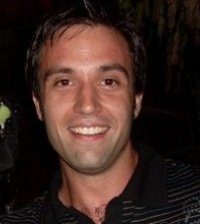
I have found this to be an exceptional program. The program couples the rigour of a traditional university qualification with flexible online delivery.
All courses were thoroughly engaging, of an excellent standard and linked together very well. Foundation courses provide the theory to confidently apply concepts from mathematical statistics and probability theory in later courses and beyond. Courses bridge the gap between mathematical understanding and applications in health and science research.
As a graduate one is equipped to perform appropriate statistical analysis, understand what is happening “beneath the hood”, and tailor the interpretation of results to the intended audience.
Gary Segal Senior Quantitative Analyst, AurizonMaster of Biostatistics
University of Queensland, and BCA Star Graduate 2016
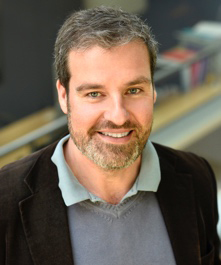
Before my BCA experience, I held a Ph.D. and MSc degrees in Epidemiology. Always, I wanted to gain a better mathematical understanding of the methods and statistical tools that as a researcher I was using.
I think that our society is currently experiencing a data-driven revolution with increased access to a wide variety and quantity of multidimensional data in the health sector. I believe that any applied researcher responsible for medical data analysis should have a firm grounding in mathematics and biostatistics. BCA Master in Biostatistics has given me this and provided me with training in the application of statistics to public health and epidemiological research and broadened the statistics skills I had gained during my Ph.D. I found the courses to be well designed and enjoyed being taught by leaders in the field across a range of universities.
I recommend the BCA experience to anyone interested in becoming a grounded applied biostatistician interested in developing a high quality standard of science using the best and current applied statistical knowledge needed to answer complex biomedical questions in epidemiology and public health.
Miguel Angel Luque-Fernandez Lectuer, Epidemiology and Biostatistics London School of Hygiene and Tropical MedicineMaster of Biostatistics
University of Newcastle 2015
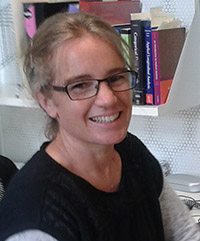
The Master of Biostatistics course has been fantastic: well run, engaging and surprisingly interesting.
I’ve enjoyed every unit, and have been employed in a data management and stats position for 2 years now, with more offers of work than I have time for in my week – all as a direct result of the skills I’ve acquired during this course. Taking up biostats was a very good move for me.
Kate Chappell Project Officer, Menzies Institute for Medical Research, University of Tasmania| Master of Biostatistics University of Sydney 2015 |
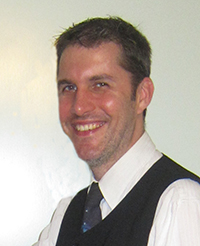
I had been teaching physics for ten years when my first child was born. I resigned from my teaching career to become a stay-at-home father. I had always been interested in health research due to interactions with friends and family and became aware that there was a shortage in Australia of skilled biostatisticians. So after a bit of research I began studying part time for my Master of Biostatistics through the BCA program, which is internationally acknowledged as being excellent.
With a good mathematical foundation, but no background in either health or statistics, there was a steep learning curve for me. Fortunately, the BCA program is well tailored to suit online, part time study. The lecturers, instructors and associated staff were always helpful and the online discussion groups enabled conversations to take place between colleagues from a wide range of backgrounds.
I very much appreciated the time and effort that was spent organising the comprehensive course notes (which I often refer back to) and the learning activities and assessments that were so often based on highly practical applications of the theory. Having now been employed for several months as a biostatistician, I can say that I am proud of completing my challenging studies, that the course well equipped me for my current role and that I am enjoying my fledgling new career!
Simon Turner Research Officer (Biostatistics) Australasian Cochrane CentreMaster of Biostatistics
University of Melbourne and BCA Star Graduate 2015
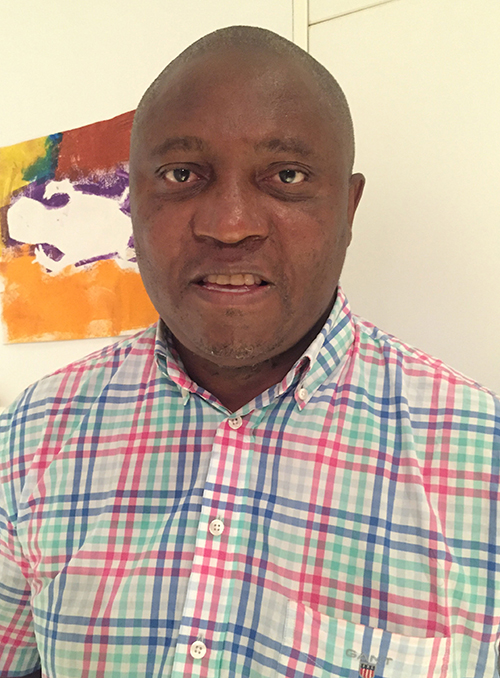
Statisticians with whom I worked inspired me to explore the possibility of formally training in statistics.The Biostatistics Collaboration Australia course offered me the best opportunity to undertake this aspiration. The structured nature of the course, the online delivery of the teaching and the ready availability of help when needed gave me the best option as my full time job as a clinician is extremely busy. With an ambitious self-set target to finish the course in the shortest possible time I had to work extra hard both at work and at home to create the opportunity.
Though ambitious, the effort was worth it. The directed learning over a range of statistics topics starting with the mathematical background theory to the practical applications of statistical principles has afforded me a higher level of understanding of statistical procedures invaluable to the vast majority of research work that is performed in medicine in general, in nephrology in particular and that is published in the medical literature.
Although time constraints created challenges, I enjoyed the course immensely and have already recommended it to 2 of my colleagues, who are now doing it. This course has provided me with the possibility of increasing my contribution to research which has been one of my life long career dreams.
Master of Biostatistics
University of Newcastle 2015
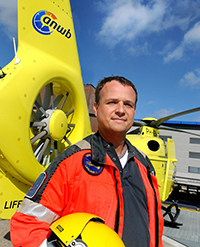
My background is anesthesiology and emergency medicine, and I’m involved in several research projects in our department. What has always fascinated me the most about doing research was to work with the data and to draw sound conclusions based on what we had observed. However, my statistical abilities were limited and I therefore decided to extend my knowledge to a level on which I could perform professional analyses of my research data.
The BCA program allowed me to study next to my regular work at my own pace. The learning objectives are clear, units and course material are highly relevant, and online discussions with fellow students as well as excellent and timely feedback by instructors made studying biostatistics an enjoyable experience. I am proud of completing this program, which has provided the necessary skills to perform adequate analyses of medical research data.
Patrick Schober Anesthesiologist and Helicopter Emergency Medical Services Physician, Research Coordinator Acute Medicine, VU University Medical Center Amsterdam, The NetherlandsMaster of Medical Statistics
University of Newcastle and BCA Star Graduate 2014
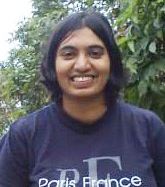
I found the BCA program to be excellent, particularly in terms of having courses that are relevent to my job as a statistician. Hard to manage part-time study with full time work, but my studies really directly benefited my work. It’s great to have such courses here, learning from experts from all around Australia.
Jeeva Kanesarajah Statistician, Centre of Military & Veterans' Health, University of QueenslandMaster of Biostatistics
University of Queensland 2014
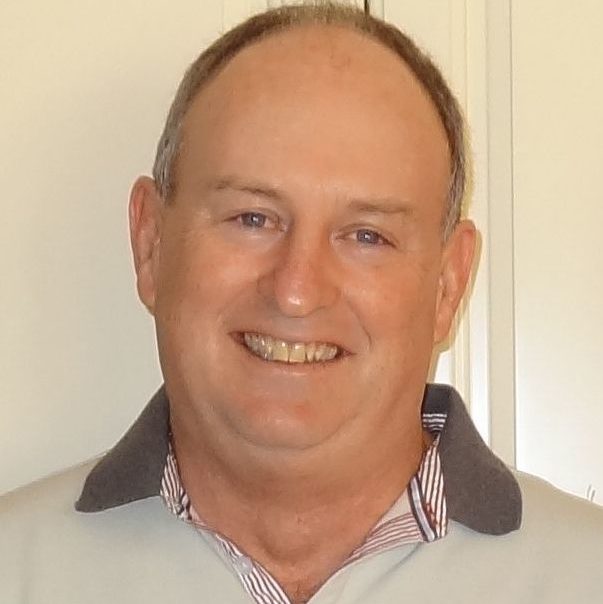
My primary work is as a clinician in Intensive Care Medicine. However, having had a life-long interest in computer programming and databases, I had become a default resource within our ICU for quality assurance and research projects, including the provision of ‘questionable’ statistical advice. Like many in the medical field, my statistical knowledge was self-taught, limited and completely unstructured.
The BCA course offered me the opportunity to undertake directed learning over a range of topics, from pertinent background theory to applied techniques central to the vast majority of research work undertaken within our ICU and that published in the medical literature.
Whilst at times challenging, I enjoyed the course immensely and would not hesitate to recommend it to a colleague. The course has left me wishing to extend my learning further and has provided me the fundamentals necessary for this to occur.
Master of Biostatistics
University of Adelaide and BCA Star Graduate 2014
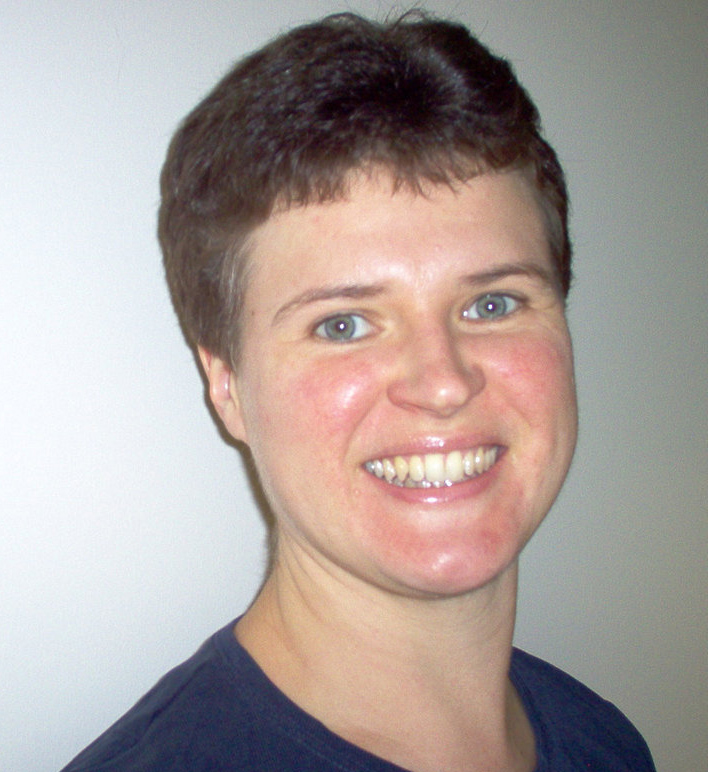
I am a statistician in the Data Management and Analysis Centre in the School of Population Health at the University of Adelaide, where I work mainly on perinatal clinical trials. This is a position I achieved due to my BCA studies – prior to this, I was working as a lecturer in medical and health ethics, and had no formal statistical or mathematical training.
I enrolled in the BCA specifically to retrain for a career in biostatistics, and although the journey has been challenging, it has also been very rewarding.
The BCA program provided the right balance of strong theoretical foundations and practical statistical skills; I found that the breadth and depth of the materials provided an excellent grounding for a statistical career. A great amount of thought and effort has clearly gone into both the individual courses, and the cohesiveness of the program as a whole. I still have all my course notes, and consult them at regular intervals!
Master of Biostatistics
University of Adelaide and BCA Star Graduate 2014
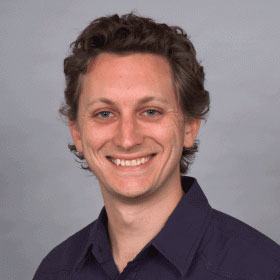
I came to the Master of Biostatistics program with a history in Psychology and government and social research. The program has helped me move into public health research, and I am currently working at the National Drug and Alcohol Research Centre (NDARC), where I am working on a large-scale NHMRC funded randomised control trial. In addition, I provide statistical advice and support to other researchers in the centre.
The Master of Biostatistics has given me the skills and understanding to approach a wide range of complex research problems, increasing the quality not only my own research (which has resulted in a number of papers published, accepted or under review), but also the research being conducted NDARC.
Philip Clare National Drug and Alcohol Research CentreMaster of Biostatistics
University of Sydney 2013
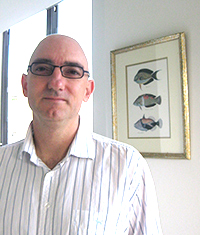
My current position is Senior Statistical Systems Officer at the NSW Ministry of Health where I work preparing, securing and testing the datasets that are used by epidemiologists in the public health network. I had previously worked as a scientist for the NSW Department of Primary Industries, so the BCA was an excellent transition degree which gave me an understanding of epidemiology and the types of statistical analysis that are performed.
The BCA courses were very practical and focussed on the sorts of problems that biostatisticians face every day. In particular, the courses on the analysis of linked data and survival analysis were thorough and provided the skills and knowledge to try these methods on real research problems. The earlier courses in probability and distribution theory were challenging but very rewarding. I’d recommend this program to anyone considering a career in biostatistics and it would be an excellent award to complete before commencing a PhD in biostatistics
James Scandol Senior Statistical Systems Officer, NSW Ministry of HealthMaster of Biostatistics
University of Sydney, and BCA Star Graduate 2013
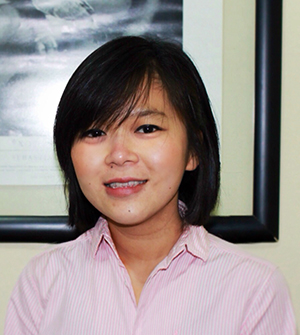
My undergraduate background is in Mathematics and Statistics from the University of Melbourne. Health research has always been my career ambition and my first job following undergraduate was a research assistant position at a medical school. Soon after, as I noticed that practical experience and a qualification are equally important, I decided to opt for the flexible BCA program and started doing the two simultaneously.
For 3.5 years with the BCA, I held different research- and data-related roles at the University of Hong Kong, Cancer Council Victoria and the World Health Organization. Not only was the training I received in biostatistics and epidemiology from the BCA program supplemented each of these roles very well, I took advantage of the high mobility that it allowed to maximize my exposure in different public health issues worldwide. I am now one of the statisticians at the International Centre for Equity in Health in Southern Brazil and continue find the material taught by the BCA program useful for my work here.
My next goal is to further develop my skills in epidemiology at the PhD level, and ultimately, to apply these skills in quality research for the provision of scientific evidence to guide national and international public health decisions.
Kerry Wong Statistician, International Centre for Equity in Health, Southern BrazilMaster of Biostatistics
University of Melbourne 2013
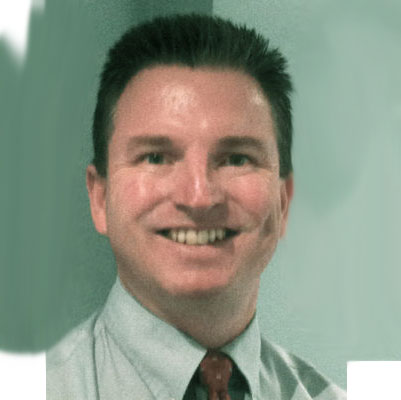
I am an ophthalmic clinician scientist and did the BCA course one subject per semester over 6 years. Although a long-term commitment, the workload was manageable and each subject added to a powerful statistical toolkit that has given me confidence to handle the design and analysis of all my research endeavors, including RCTs, cluster sampling surveys, and dealing with correlated data.
Becoming a trained statistician has improved the quality of my research and provided an unfair advantage when writing manuscripts and grant proposals.
Robert Casson Head, Discipline of Ophthalmology & Visual Sciences; Director of Research, SA Institute of Ophthalmology; Unit Director, Ophthalmology Network, Lyell McEwin Hospital; Professor, University of AdelaideMasters of Biostatistics
University of Adelaide 2012
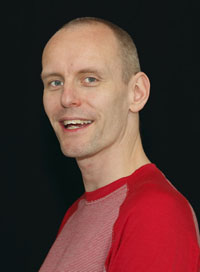
I am currently employed as a Senior Research Fellow at the University of Melbourne. While I had completed a PhD in psychology, I wanted to retrain as a statistician and work in population health research.
The Master of Biostatistics gave me the opportunity to achieve both those goals. The programme has a strong focus on the theoretical underpinnings of the major statistical methods that are used in health research and this is closely linked with the correct interpretation of the parameters that arise from the application of each method. The programme places this in the context of health research, drawing on problems applied to experimental and observations studies. Completing the degree has allowed me to work on interesting and rewarding problems in a wide range of areas.
Matthew Spittal Senior Research Fellow, University of MelbourneMaster of Biostatistics
University of Melbourne 2011
My background is chemistry, in particular computational chemistry and computer-aided drug design. When projects progressed, I got more and more involved in the planning and analysis of preclinical and clinical studies. At a certain point I noticed that I need a profound knowledge of biostatistics to proceed.
Distance learning in Australia offered the most appropriate way to combine studies of biostatistics with my work in Germany. The studies offered by BCA were stimulating, provided a detailed insight into statistics and covered many practical aspects relevant to my day to day work as well.
On graduation, I worked as Senior Scientist at the Revotar Biopharmaceuticals AG, where I was able to apply the techniques learnt from BCA in clinical trials. Also, I am giving lectures of computer-aided drug design at the Beuth-Hochschule, an university of applied science located in Berlin. Many techniques in this field are based on statistical principles. Thus, my students benefit indirectly from BCA as well. I am currently a Senior Scientist at the Max Planck Institute for Infection Biology.
Michael Meyer Senior Scientist, Max Planck Institute for Infection Biology (Berlin)Master of Biostatistics
The University of Sydney 2011
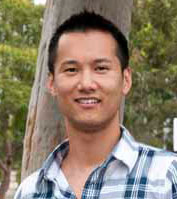
My background is in neuroscience, in particular clinical research and motor neurone disease. There is increasing awareness amongst neuroscientists that we need to be smart about how we handle study design and data analysis, especially given the low incidence and prevalence of neurological disorders. Biostatistics enables us to maximise the value of every patient and every test that we perform on each patient.
I originally enrolled in the BCA program because statisticians are able to shed a different light on research that often differs to what conventional scientists may offer. Biostatistics training also endows scientists with the ability to think in a very clear, logical manner. As someone who aspires to working in full-time academia, the BCA course has also broadened my scope for conducting research in the future, as I hope to develop novel statistical methodologies, in addition to undertaking neuroscience research.
Ben Cheah 2011 Fulbright NSW ScholarMasters of Biostatistics
Macquarie University 2010
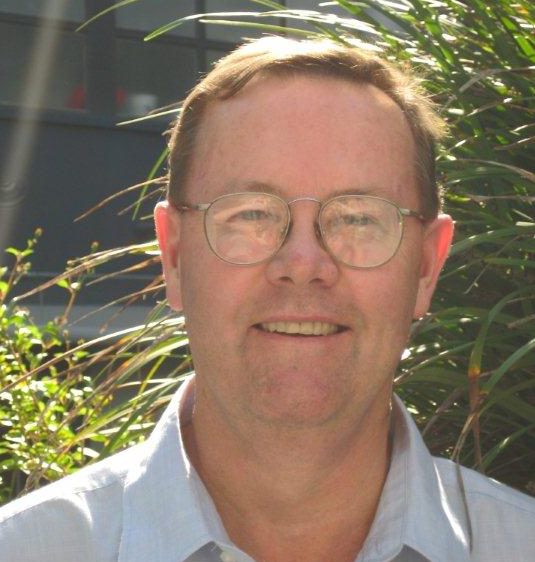
I am a biostatistician with the Australasian Kidney Trials Network, based at the Princess Alexandra Hospital. I work in a team that contributes to the design of clinical trials in kidney disease. Later this year we will be launching our first two trials: one to assess the effect of aspirin and fish-oil in the prevention of thrombosis and the other to study the use of wound gel to prevent catheter-associated infections.
I did not have a health or statistics background and found it extremely satisfying to master concepts that grew in complexity and challenge after each unit. The program is highly valued by employers, many of whom are closely involved in its development, and it offers a great balance between theory and practice.
Biostatisticians are in huge demand, especially as the emphasis on evidence-based medicine grows and advances are made in genetics. I work with highly motivated and creative people and enjoy the feeling that the trials we create may make a big impact on medical practice and people’s health worldwide. It’s an engrossing experience.
Charles Thompson Senior Biostatistician, Australian Kidney Trials NetworkMaster of Biostatistics University of Queensland 2010
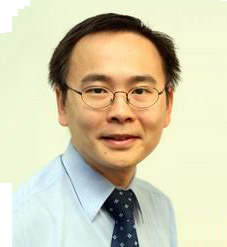
I started and completed the BCA Masters while undergoing clinical training in medical oncology. Without any formal previous training in statistics or mathematics, the BCA program provided a formal teaching in theory and application of statistics in research of public health, clinical epidemiology and clinical trials. The courses are well designed, highly relevant, practical and taught well through distant learning programs.
I am now a medical oncologist at St George Hospital and a research fellow at the NHMRC Clinical Trials Centre, the University of Sydney. The skills learnt through the BCA program have been essential to my ongoing clinical and research career.
Chee Lee Medical Oncologist at St George Hospital and Research Fellow, NHMRC Clinical Trials Centre, University of SydneyMaster of Biostatistics
University of Sydney 2009
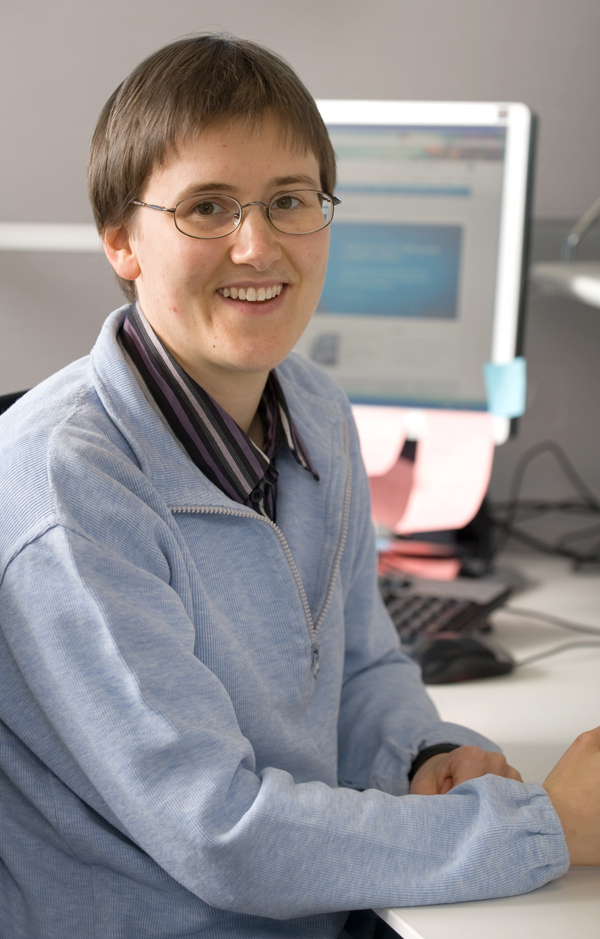
Prior to enrolling in the BCA course, I studied Biomedical Science at Monash University, followed by Honours in the Department of Epidemiology and Preventive Medicine. While doing my Master of Biostatistics, as the course was part-time, I worked part-time as a Research Assistant, and also did some tutoring in Epidemiology, Biostatistics and Survival Analysis.
I now work in the Women’s Health Research Program at Monash University, as the group’s biostatistician. In addition, I have been able to continue my teaching, assisting with coordination of “Population Health” for first year medical students.
Since I started full-time work, there has been lots of talk of me doing a PhD at some point. I didn’t want to consider it at first (after 8 years of continual study) – but now its something that I’m considering … when the time is right.
Penny Robinson Biostatistician, Women’s Health Research Program, Monash UniversityMaster of Biostatistics
Monash University 2009
After completing medicine, advanced training in clinical and laboratory haematology and a PhD, I realized that it was necessary to have the ability to collect and analyse data appropriately. The BCA masters course has provided a theoretical and practical approach to all aspects of biostatistics and formed the basis of further studies on the use of statistics in medical practice.
In addition to the course being exceptionally well run from start to finish, there was also continuing appropriate liaison with tutors and other students via web based discussions, that allowed most problems of misunderstanding to be addressed before they became issues. Additionally there was appropriate guidance regarding the major project from supervisors at Macquarie University.
This was, in summary, a well run and extensive course that has provided the methods of data collection and analysis in most aspects of biostatistics, which I highly recommend.
Lindsay Dunlop Senior Staff Specialist Haematologist Liverpool Hospital Sydney, Associate Professor (conjoint) Western Sydney UniversityMaster of Biostatistics
Macquarie University and BCA Star Graduate 2009
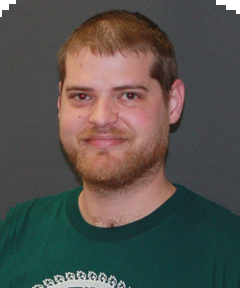
I was employed by the NSW Health Biostatistical Officer Training Program towards the end of a PhD in Biology, which gave me the opportunity to complete a Master of Biostatistics through the BCA. Studying statistics with the best biostatisticians quickly filled in the gaps in my knowledge and then expanded my understanding of epidemiological studies and how to turn data into useful information. I now work as the Biostatistician with The 45 and Up study, the largest cohort study in Australia. Every day I get to work with some of the best health researchers in Australia. I am able to make a substantial contribution to planning the next steps in The 45 and Up Study as well as collaborating with researchers using 45 and Up data.
Kris Rogers Biostatistician, The 45 and Up Study, The Sax InstituteMaster of Biostatistics University of Sydney 2008
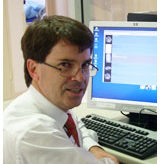
Evidence-based medicine requires a reliable basis of evidence! As a practising clinician who wanted to conduct my own research, I realised that I needed to develop the relevant expertise. I was attracted to the BCA’s claim to provide a background in mathematical and statistical theory to those without a first degree in mathematics or statistics, to fill the gap between public health/epidemiology and general statistical courses. Part-time study by distance allowed me to work and study at the same time. Staff are highly competent and enthusiastic. I believe the BCA delivers on its promise to ‘address the need for highly skilled biostatisticians for health and medical research’.
Jeff Presneill Intensive Care Physician, Mater Hospital Brisbane Associate Professor, School of Medicine, University of QueenslandMaster of Biostatistics
The University of Melbourne 2007
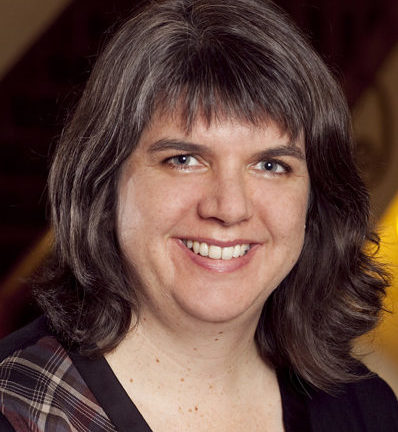
I completed the BCA Masters as part of the NSW Health Biostatistical Officer Training Program. The masters provided training in the application of statistics to public health and epidemiological research and broadened the statistics skills I had gained during my PhD. I found the courses to be well designed and enjoyed being taught by leaders in the field across a range of universities.
I am now a Research Fellow in Biostatistics in the Screening and Test Evaluation Program at the Sydney School of Public Health, University of Sydney. The skills learnt during the masters have been essential to my ongoing research and career.
Robin Turner Research Fellow in Biostatistics, Screening and Test Evaluation Program, Sydney School of Public HealthMaster of Biostatistics
The University of Sydney and BCA Star Graduate 2007
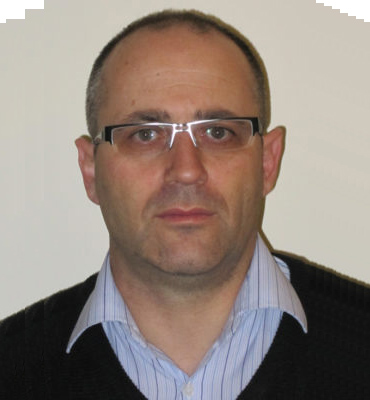
I have been working for a medical device manufacturer Compumedics for many years developing mathematical algorithms and software for processing of physiological signals and intelligent treatment devices, primarily in the field of sleep medicine.
I found almost all subjects in the Master of Biostatistics program to be extremely useful in filling the gaps between the practices of biomedical engineering and their clinical outcomes, as well as challenging and enjoyable due to the sound mathematical foundations. The key practical benefit of the BCA program for myself is probably the capability to plan, supervise and analyse clinical trials, that enables to appropriately evaluate performance and safety of the diagnostic and treatment products and eventually prepare product submissions to the regulatory organisations.
Eugene Zilberg Medical Device Manufacturer, CompumedicsMaster of Biostatistics
University of Melbourne 2007
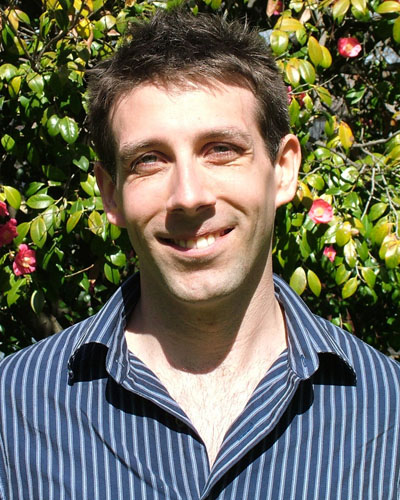
I was working as a Research Assistant at a biostatistics unit of a major metropolitan hospital when I started the BCA. I enrolled because I wanted to gain a more detailed understanding of the statistical techniques used in public health, as well as learn about more advanced topics, such as analysis of longitudinal data and Bayesian statistics. The BCA offered a level of rigour that adequately prepared me for a career in biostatistics and was taught by first-class biostatisticians. As a result of the skills I acquired, I am now in a Research Fellow biostatistician role where I primarily work on statistical methods, and am also enrolled in a PhD.
Kris Jamsen Research Fellow, Centre for Molecular, Environmental, Genetic and Analytic (MEGA) Epidemiology, University of Melbourne| Master of Biostatistics The University of Melbourne 2007 |
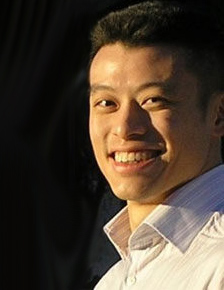
I work in healthcare acquired infection (HAI) research, primarily in risk factor studies. My colleagues and I estimate the economic cost of HAI and implement statistical process control for the surveillance of HAI in all Queensland public hospitals.
The Biostatistics program is taught by experts renowned in Australia and around the world. The program emphasises the analysis of real – that is, imperfect – datasets, so is great preparation for working life. And studying by distance was great. It meant I was able to learn from top biostatistics experts from around the country while still enjoying online class discussions with fellow students who shared insights from their own jobs.
A career in biostatistics is a rewarding one that allows you to make important contributions to many fields of research and development. Opportunities are plentiful and determined by your own personal interests.
Edward Tong| Master of Biostatistics University of Queensland 2007 |
I am a statistical programmer working on clinical trial analyses and methodologies in the pharmaceutical industry. I was fortunate to be enrolled in the BCA program while working in the Biostatistics unit of Pfizer Australia, which allowed me to learn the statistical methods and application of those methods employed on pharmaceutical clinical trials, while working closely with expert biostatisticians. I am currently working at Roche, and my increased knowledge from the Masters program allows me to take a greater responsibility on clinical trial analyses and provide input on design issues to my statistical colleagues. I was very impressed by the depth of knowledge and experience of the course coordinators at the participating universities and also by the commitment and contribution of industry experts from both Pfizer and Roche.
Brent Carryer Pfizer Global PharmaceuticalsMaster of Biostatistics
The University of Sydney 2007
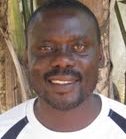
I completed the Masters as part of my training as a Medical Statistician at the Malawi-Liverpool Welcome Trust Clinical Research Centre, Malawi. I have since completed my PhD in Statistics with the University of Liverpool and University of Malawi focusing on statistical methods of handling missing data. I have co-authored more than 20 publications in a range of topics and supervised a number of MSc statistics students at the University of Malawi. I currently hold a Postdoctoral fellowship in Biostatistics at Johns Hopkins University in the USA focusing on the design and analysis of Cluster Randomized Trials.
I am proud of my Master of Biostatistics and grateful for the contribution the BCA program has made to my career.
Mavuto Mukaka Postdoctoral Fellow, Department of International Health, Johns Hopkins UniversityMaster of Biostatistics
Macquarie University 2006
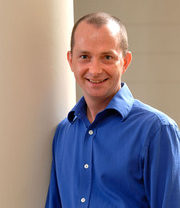
I was originally working in General Practice Data Management and needed to update my skills. The Masters of Biostatistics was delivered completely online, and this was what attracted me to the course. As a Biostatistician you’ll be asked many different questions and you’ll need to have the knowledge to confidently address these. The Masters course provided me with both the depth and range required. The area is highly specialised and as such there are many opportunities for people with such a qualification.
Kevin McGeechan Senior Lecturer, Epidemiology and Biostatistics, University of SydneyMaster of Biostatistics
The University of Sydney 2006
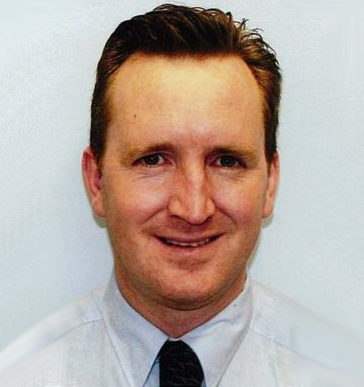
I was training to be a cardiologist when I started the program. Cardiology is one area of medicine which is fortunate to have a strong tradition of high quality clinical trials which address key areas of practice.
The Master of Biostatistics course has given me a comprehensive understanding of clinical trial design, analysis and interpretation of trial results. This has allowed me to successfully incorporate the available evidence into my clinical practice. It also has enabled me to design, implement and analyse clinical research programs both on my own and in collaboration with others.
Master of Biostatistics
The University of Sydney 2006
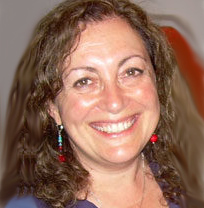
After completing my undergraduate degree in biological sciences in Argentina, a PhD in Melbourne and 21 years of research in immunology of transplantation and renal disease I was ready for a change.
I found the biostatistics course challenging and stimulating. It gave me a real insight into the field and vastly increased my skills.
I’m now working as a Senior Epidemiologist at CSL where I’m involved in making evidence-based decisions for health policy. I’m still using many of the course materials in my day-to-day work. My only regret is that I wish I’d taken the Bayesian Statistics unit as well!”.
Alicia Stein Senior Epidemiologist, CSL LimitedMaster of Biostatistics
Monash University, and BCA Star Graduate 2005
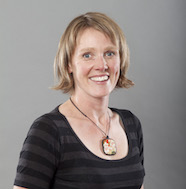
Ever since taking an epidemiology undergraduate paper while completing my Mathematics and Statistics degree, I have been interested in the confluence of health and statistics. After a few years as a Research Assistant in an Epi & Biostats unit I enrolled in the BCA Masters Degree. The BCA’s programme was an obvious choice for me – renowned lecturers, wide range of courses and distance taught so I could fit it in around full-time work. Even though working full-time and studying part-time was challenging, it was encouraging to see how applied the courses were and have opportunities to apply the course material to my work.
I am currently a Biostatistician/Senior Research Fellow in the Injury Prevention Research Unit (IPRU) at the University or Otago, Dunedin, New Zealand. The BCA papers I took have given me knowledge and resources that I find extremely valuable in my consulting, teaching and research.
Gabrielle Davie Biostatistician/Senior Research Fellow - Injury Prevention Research Unit (IPRU), University or OtagoMaster of Biostatistics
The University of Melbourne 2005
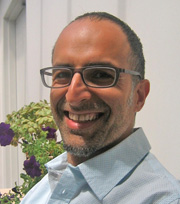
I have a degree in sociology (PhD 1990) and just finished my Masters degree with the BCA. Although I had quite a solid quantitative training in my postgraduate years in the 80s, I was always looking for an opportunity to learn statistics/biostatistics more formally and systematically. I was very happy to hear about BCA in 2001 and signed up to do the course immediately. Biostatistics in my view is a set of specialized statistical techniques appropriate for analysing data from biomedical and public health sciences and epidemiological studies.
I am essentially a public health researcher and use biostatistics to anlyse survey data and population based cohort studies. I also give a lot of statistical advice to my colleagues from the health behavioural and social sciences who conduct a lot of experiments. I think anyone who does health research and is responsible for data analysis should have a firm grounding in biostatistics.
Sloppy data analysis and using common statistical softwares without a sound knowledge of statistical assumptions and techniques do not contribute to scientific progress. The BCA provides a very rigorous training in most essential techniques that data analysts need to know.
Mohammad Siahpush Professor, Associate Dean Research, Department of Health Promotion, Social & Behavioral Health University of Nebraska Medical Center College of Public HealthMaster of Biostatistics
University of Melbourne and BCA Star Graduate 2004
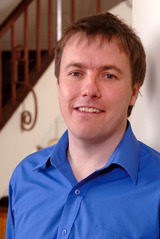
I am currently a senior lecturer in biostatistics at the School of Public Health at the University of Sydney, where I am employed by the Screening and Test Evaluation Program. Although I already had a PhD in statistics, I found the BCA Master of Biostatistics degree to be valuable in helping me change my career focus from theoretical statistics to working in public health and epidemiology.
The course was practical and engaging, and enabled me to gain an academic position in biostatistics on graduation. I now do both methodological and applied research with a particular focus on screening and diagnosis, and use the skills and knowledge from the BCA degree underpin my work.
Andrew Hayen Senior Lecturer in Biostatistics, School of Public Health, Screening and Test Evaluation Program, University of SydneyMaster of Biostatistics
University of Sydney and BCA Star Graduate 2004
